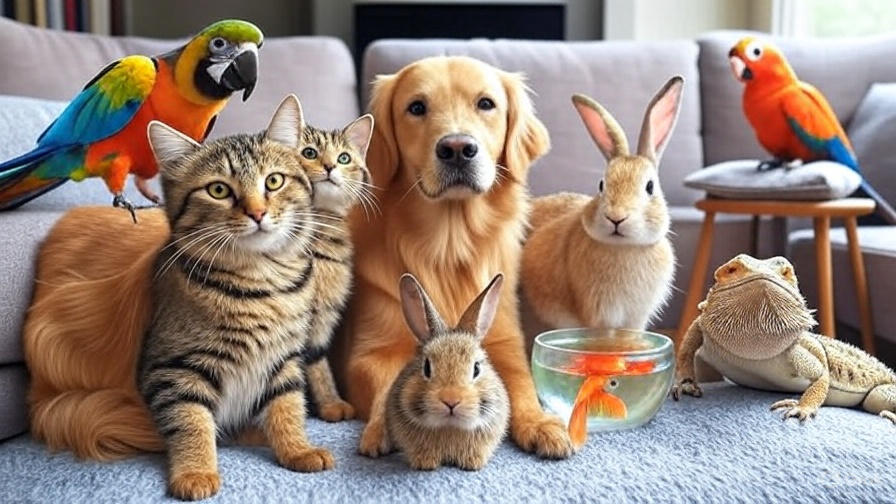Understanding what counts as a pet is more complex than you might think. Whether you’re a first-time pet owner, considering an exotic companion, or simply curious about legal definition domestic animal classifications, this comprehensive guide will clarify everything you need to know about pet definitions, legal requirements, and the fascinating world of domestic pet definition law.
Understanding the Legal Definition of Domestic Pets

The domestic pet definition law varies significantly across jurisdictions, but most legal systems define a domestic pet as an animal that has been selectively bred and adapted to live alongside humans as companions. According to legal frameworks referenced by authoritative sources like Wikipedia’s animal classification systems, domestic pets are distinguished from wild animals by their behavioral traits, genetic modifications through selective breeding, and their ability to thrive in human environments.
Examples of domestic pets that are universally recognized include:
- Dogs (Canis lupus familiaris)
- Cats (Felis catus)
- Rabbits (Oryctolagus cuniculus)
- Guinea pigs (Cavia porcellus)
- Hamsters and gerbils
- Common fish species (goldfish, bettas)
- Certain bird species (canaries, budgerigars)
The Difference Between Domestic and Wild Animals
Understanding the difference between domestic and wild animals is crucial for pet ownership. Domestic animals have undergone thousands of years of selective breeding, resulting in genetic and behavioral changes that make them suitable for human companionship. Wild animals, regardless of being hand-raised, retain their natural instincts and biological needs.
Forbes has reported extensively on the growing trend of exotic pet ownership, noting that many animals people consider “pets” may actually be wild animals requiring special permits and care. This distinction is vital for legal compliance and animal welfare.
Are Reptiles Considered Pets Legally?
The question “are reptiles considered pets legally” doesn’t have a universal answer. Many reptile species are considered domestic pets when they’re captive-bred and commonly kept as companions. These include:
- Bearded dragons
- Leopard geckos
- Ball pythons
- Corn snakes
- Blue-tongued skinks
However, some reptile species require special permits or are prohibited entirely. The legal status often depends on whether the species is considered domesticated, endangered, or potentially dangerous to public health and safety.
Types of Pets People Keep Domestically
The types of pets people keep domestically has expanded dramatically in recent decades. Traditional companion animals like dogs and cats remain the most popular, but modern pet ownership includes:
Traditional Companion Animals
- Dogs and cats (most common household pets)
- Small mammals (rabbits, guinea pigs, hamsters)
- Birds (parrots, canaries, finches)
- Fish (freshwater and saltwater species)
Alternative Pets
- Reptiles and amphibians
- Invertebrates (tarantulas, hermit crabs)
- Small farm animals (miniature pigs, chickens)
Exotic Pets (Permit Required)
- Ferrets (illegal in some areas)
- Sugar gliders
- Hedgehogs
- Certain parrot species
National Geographic and other scientific publications have documented the increasing diversity in pet ownership, emphasizing the importance of understanding legal requirements for each species.
Pet Ownership Laws and Definitions
Pet ownership laws definitions vary by location but generally cover several key areas:
Registration and Licensing
Most jurisdictions require registration for dogs and cats, with specific requirements for:
- Vaccination records
- Spay/neuter compliance
- Microchipping
- Annual license renewal
Housing and Zoning Regulations
Local zoning laws often restrict:
- Number of pets per household
- Types of animals allowed in residential areas
- Breeding operations
- Kennel and cattery permits
Animal Welfare Requirements
Legal frameworks mandate:
- Adequate food, water, and shelter
- Veterinary care
- Protection from abuse and neglect
- Proper containment and control
Classification of Animals in Legal Contexts
The classification of animals for legal purposes typically follows these categories:
Domestic Animals
Animals that have been bred and raised in captivity for human companionship or use, including traditional pets and livestock.
Wild Animals
Animals that maintain their natural behaviors and biological needs, regardless of captive breeding.
Exotic Animals
Species not native to the region or not traditionally kept as pets, often requiring special permits.
Endangered Species
Animals protected under conservation laws, typically prohibited from private ownership.
Understanding Companion Animals vs. Pets
While often used interchangeably, companion animals and pets have distinct legal meanings in some contexts. Companion animals may include:
- Emotional support animals (ESAs)
- Service animals
- Therapy animals
- Traditional pets providing companionship
The distinction becomes important for housing laws, travel regulations, and disability accommodations. The Americans with Disabilities Act (ADA) provides specific definitions that differ from general pet classifications.
Legal Requirements for Pet Care
Beyond basic definitions, pet care legal requirements encompass comprehensive welfare standards:
Basic Needs
- Adequate nutrition appropriate for the species
- Clean water availability
- Appropriate shelter and temperature control
- Regular veterinary care
Behavioral Needs
- Adequate space for natural behaviors
- Mental stimulation and enrichment
- Social interaction (for social species)
- Exercise and activity opportunities
Safety Requirements
- Secure containment to prevent escape
- Protection from predators and hazards
- Proper identification (tags, microchips)
- Vaccination compliance
The Legal Landscape of Pet Ownership
Understanding permitted pets in your area requires research into local, state, and federal regulations. The USDA maintains comprehensive databases of regulated species, while local animal control departments provide area-specific requirements.
Common restrictions include:
- Breed-specific legislation for dogs
- Exotic animal permits and prohibitions
- Limits on the number of animals per household
- Special requirements for breeding operations
Future Trends in Pet Definition and Law
The legal definition of pets continues evolving as society’s relationship with animals changes. Recent trends include:
Expanding Recognition
- Growing acceptance of alternative pet species
- Increased legal protections for pet owners
- Recognition of human-animal bonds in legal contexts
Stricter Regulations
- Enhanced animal welfare standards
- Tighter controls on exotic pet trade
- Increased penalties for animal cruelty
Technological Integration
- Mandatory microchipping programs
- Digital registration systems
- Enhanced tracking and identification methods
Understanding what counts as a pet requires navigating complex legal, biological, and social factors. Whether you’re considering a traditional companion animal or exploring more exotic options, thorough research into local laws and proper care requirements is essential.
The bond between humans and their pets is profound and lasting. When our beloved companions eventually cross the rainbow bridge, understanding the legal framework that governed their lives can provide comfort and clarity during difficult times. For those dealing with pet loss, remember that the love and memories we share with our pets transcend legal definitions.
Before acquiring any pet, consult local regulations, speak with veterinarians familiar with your chosen species, and ensure you can provide appropriate care throughout the animal’s lifetime. The responsibility of pet ownership extends far beyond legal compliance to encompass the physical, emotional, and social needs of our animal companions.
Key Takeaways:
- Legal definitions of pets vary by jurisdiction but generally include domesticated animals bred for companionship
- The distinction between domestic and wild animals is crucial for legal compliance
- Exotic pets often require special permits and have different legal classifications
- Understanding local pet ownership laws is essential before acquiring any animal
- Proper care requirements extend beyond basic needs to encompass behavioral and social needs
By staying informed about pet definitions and legal requirements, you can ensure a positive experience for both you and your animal companion while maintaining compliance with relevant laws and regulations.

